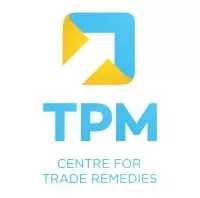The WTO Panel, in January 2023, concluded that additional tariffs imposed by the United States on steel and aluminium products, were inconsistent with its international trade obligations. The United States had, in March 2018, imposed import duties of 25% on steel products and 10% duties on aluminium products. Such measures were invoked on the grounds of threat to national security. However, some countries were provided exemption from the said measures while certain others were given an option to choose between tariffs or export restrictions pursuant to mutual agreements, whereas the measures continued to be in place for imports from all other countries. Further, such measures were imposed without undertaking analysis of increase in imports due to unforeseen developments which causes or threatens to cause serious injury to the domestic industry, as required under the GATT. This formed the basis for four individual challenges brought forth by China, Norway, Switzerland and Turkey.
Section 232 of the Trade Expansion Act, 1962 authorises the US Secretary of Commerce to conduct appropriate investigation for determining the effect of imports of an article on the national security of the United States. Under this provision, the US Secretary of Commerce issued Steel Report and Aluminium Report concluding that the imports of certain Steel and Aluminium products pose a threat to the national security of the US. It was held that such imports were weakening the internal economy of the country and threatened to impair its national security.
Import tariffs imposed by United States
Considering the threat to its national security, the US Secretary recommended either imposition of global quota or tariff rate on all imports or imposition of tariffs on imports from certain countries and quotas on imports from all country based on 2017 import volumes. Based on the said recommendations, the US President imposed an additional duty of 25% and 10% respectively on certain Steel and Aluminium imports from all countries, with exemptions for imports from Canada and Mexico.
The US President, thereafter, removed the exemptions given to Canada and Mexico, increased the duty on imports from Turkey to 50%. Temporary exemptions from tariffs were granted to Argentina, Australia, Brazil and Korea in exchange of agreements with these countries regarding voluntary quantitative restrictions on exports of such products. Further, these countries were also provided an option to choose between tariffs or quota.
Challenge brought against measures
Four countries, namely China, Norway, Switzerland and Turkey (complainants) brought four individual challenges before the WTO Dispute Settlement Body on the same grounds and requested the establishment of a Panel to settle the same. The complainants challenged the said measures and contended that these were inconsistent with the Agreement on Safeguards as safeguard measures can be applied only after determining that the product is being imported in increased quantities, the increase in such imports is due to unforeseen development, and such imports cause or threaten to cause serious injury to the domestic industry. Further, US failed to notify the WTO regarding initiation of safeguard investigation, \and applied measures beyond the extent necessary to prevent serious injury. The complainants contended that the measures were imposed without having determined these conditions.
It was also contended that these measures are inconsistent as they were not applied to products irrespective of their sources and involved voluntary export restraints. It was also emphasized that the US failed to extend any advantage granted by it to some member countries, to all other member countries. Lastly, the complainants alleged that the import duties were imposed in excess of bound rates provided in United States' Schedule of Concessions and Commitments and that restrictions other than duties, taxes or other charges have been imposed.
Findings of the Panel
The Panel, which comprised of the same members in case of all four disputes, held that the additional duties levied by the US is inconsistent with Article II:1(a) and II:1(b) of GATT, 1994 as they do not constitute ordinary customs duties and exceed the bound rates of United States for the relevant product.
It was further held that the exemption provided to certain countries by imposition of import restrictions or providing option to choose between tariff or quota is inconsistent with GATT 1994 as it confers an advantage to such countries. Such advantage has not been provided immediately and unconditionally to like products from all other WTO Members. Imposition of import quotas from certain WTO Members was held to be inconsistent since such quotas are prohibitions other than duties, taxes and other charges.
With regards to the inconsistency of measures under Agreement on Safeguards, the Panel held that the United States imposed measures pursuant to analysis of threat to its national security under Article XXI of GATT 1994. The Panel held that the Agreement on Safeguards is not applicable to the measures at issue, since they were not invoked under the provision relevant to safeguards in the first place.
The US submitted that the actions are justified under Article XXI(b) which states that nothing in this agreement prohibits any contracting party from taking any action considered necessary for the production of its essential security interests. The Panel held that the action for protection of the essential security interests can be taken only as per the conditions specified under Article XXI(b). While the US submitted that global excess capacities of Steel and Aluminium is an emergency international situation, the Panel held that excess capacities are not a recent development and has been in debate since 2015. The Panel noted that the analysis and conclusion of the USDOC in Steel and Aluminium reports does not pertain to measures taken at the time of war or other emergency in international relations within the meaning of Article XXI(b)(iii) of the GATT 1994.
The report of the WTO Panel in all four disputes has been welcomed by all affected members, with the aim that decision of the Panel would help revive trade with the United States. The report is also likely to boost similar claims made by India and Russia, that are currently pending before the WTO Panel. However, despite the Panel's ruling, the United States is yet to withdraw the measures imposed. The United States also has an option of preferring an appeal against the ruling. With the Appellate Body not being functional, however, that may lead to the issue remaining in abeyance for the foreseeable future.
The content of this article is intended to provide a general guide to the subject matter. Specialist advice should be sought about your specific circumstances.


